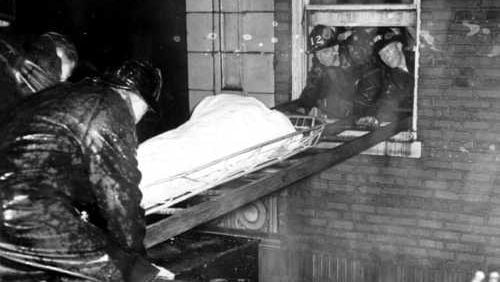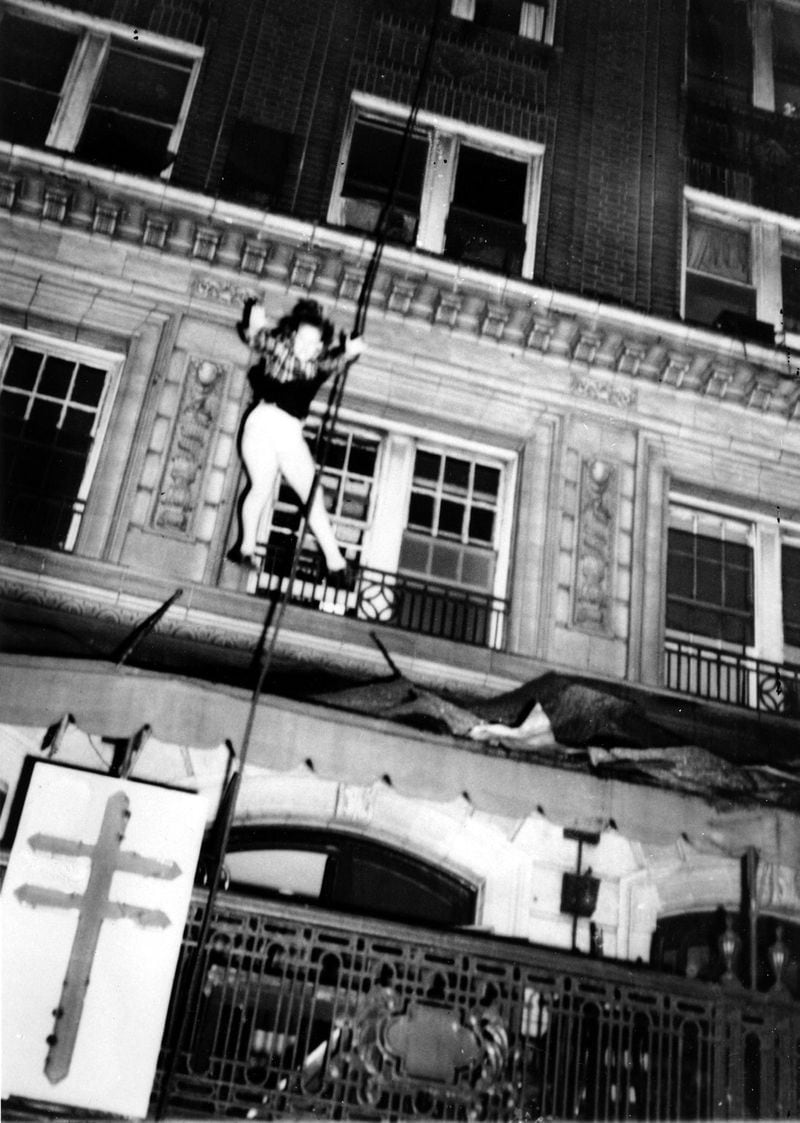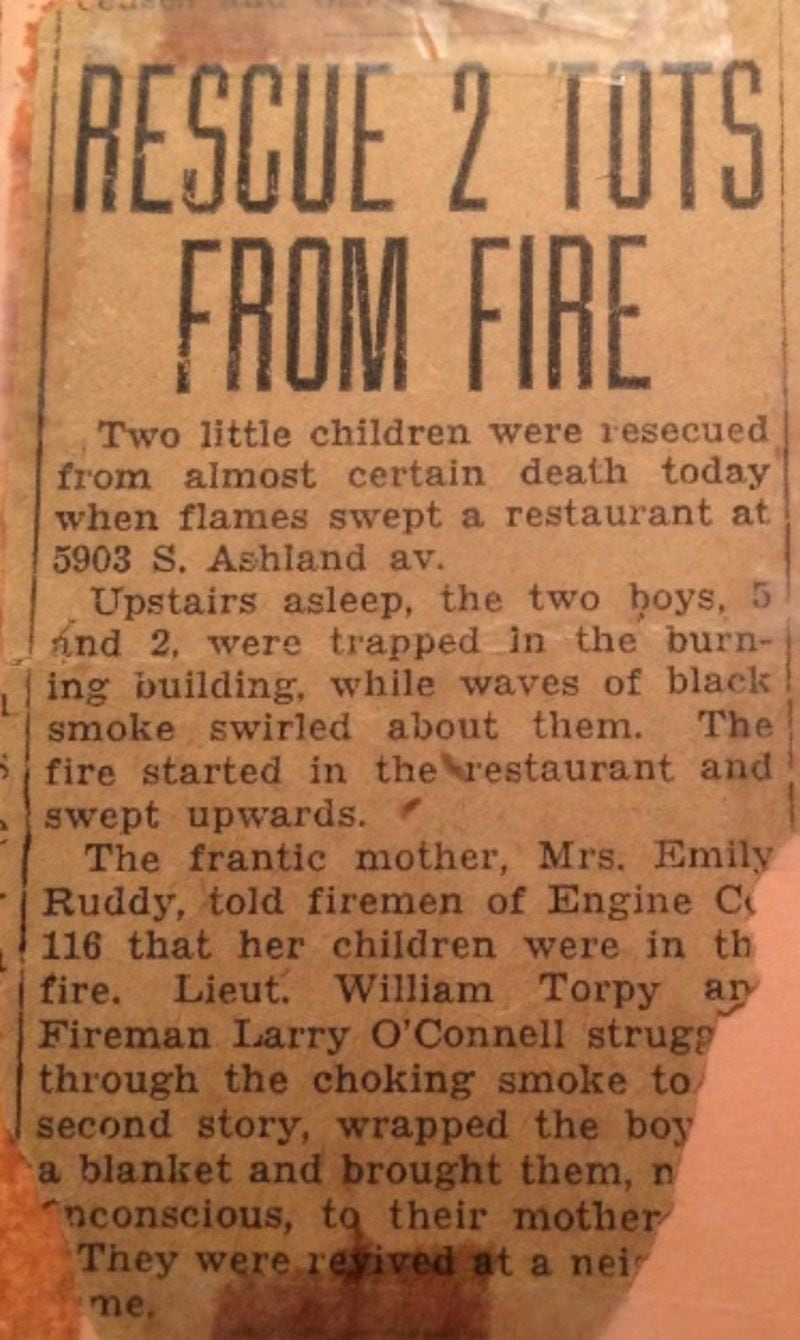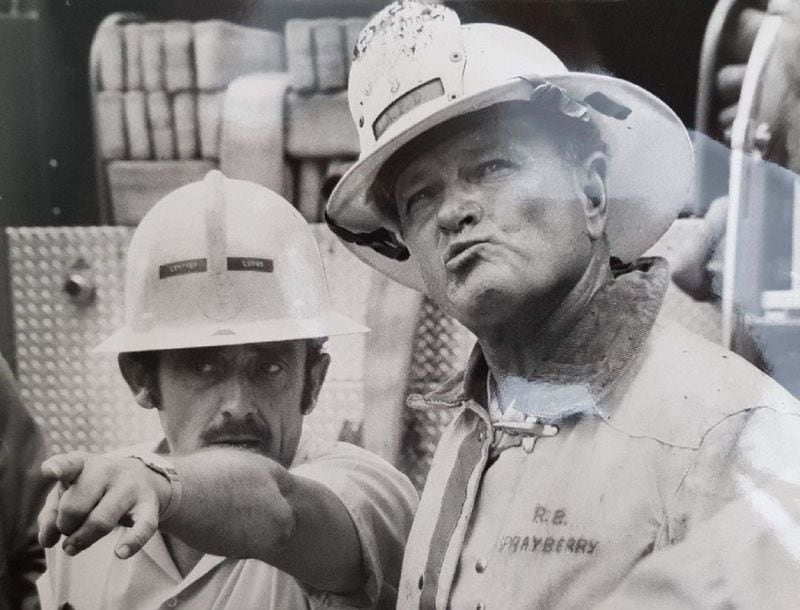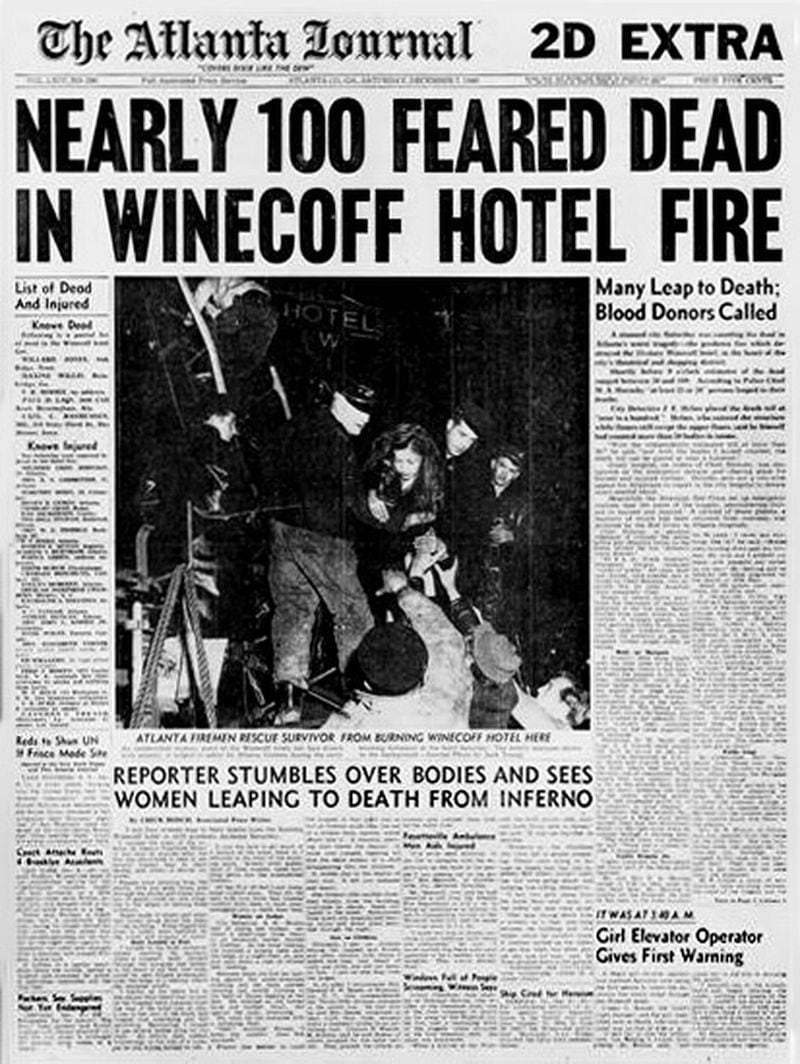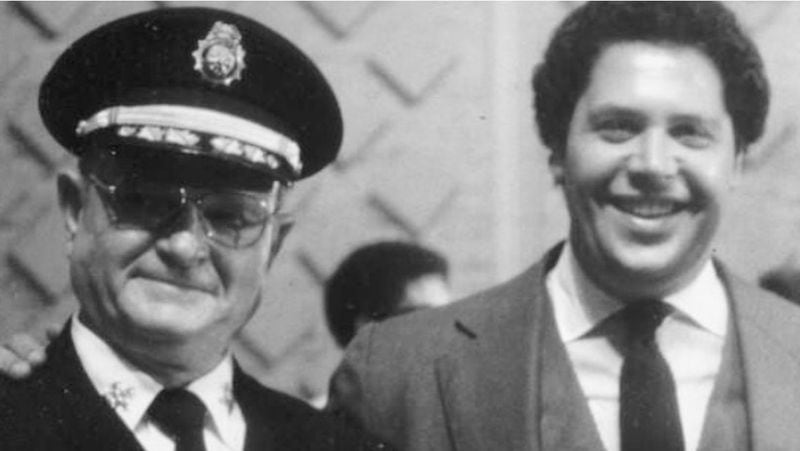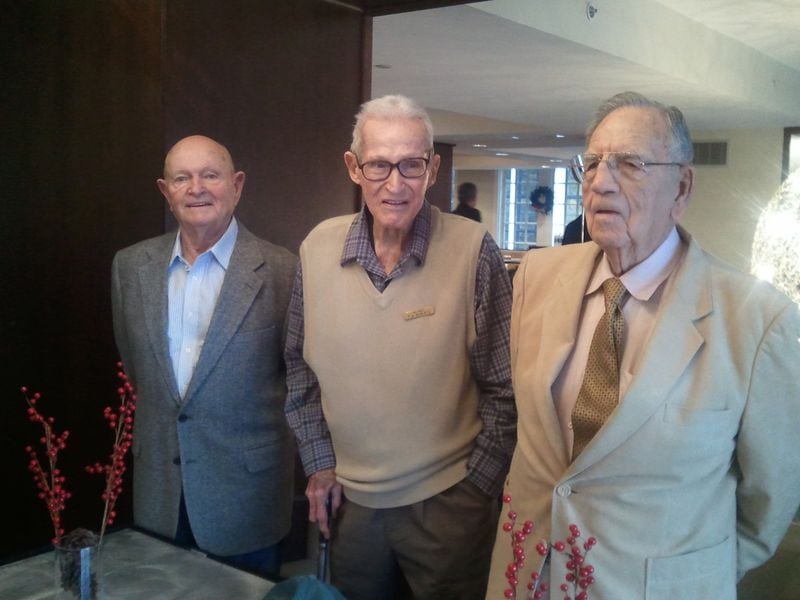The Winecoff Hotel fire was the nightmare on Peachtree Street, a hellish inferno that claimed 119 lives and remains the deadliest hotel blaze in U.S. history.
Now, the last surviving fireman who fought those flames is history, too. R.B. Sprayberry, who later became Atlanta’s fire chief, died last weekend. He was 95.
The fire in the crowded 15-story hotel on the morning of Dec. 7, 1946, became a ghastly spectacle, a horror show of helplessness as dozens of terror-stricken guests gazed down on the city's premiere street as firefighters scurried below, desperately trying to save them.
Half a century before the world witnessed human beings hurtling toward the pavement at the World Trade Center, some 30 desperate guests plunged or leaped to their deaths from the burning Atlanta hotel.
“When the firefighters were on the sidewalk, they hugged the building to keep from people landing on them,” said Richard Sprayberry, one of R.B. Sprayberry’s sons. He had another son, David, and his wife of two decades was Angelynn.
“One of my uncles (who was a fireman) told me the water running down the sidewalk was red because of all the blood. People were hanging from sheets screaming. It was traumatic,” Richard Sprayberry said.
So much so that R.B. Sprayberry, who was on the department for 39 years and saw a lot, didn’t speak much about that night. In fact, his son Richard said he never heard him mention it.
“My dad wouldn’t talk. Period.”
History will remain mute about Sprayberry’s actions that night because of his own silence. Firefighters arriving on the scene quickly discovered that their ladders fell far short of many of the windows, where guests leaned out, gasping for air and trying to attract attention.
The Winecoff, built in 1913, was one of the city's top hotels. "It was regarded as 'fireproof' despite having no fire escapes, no sprinkler system, no fire doors and no enclosed stairway," according to a 1986 story published jointly in The Atlanta Journal and The Atlanta Constitution. "The stairs wrapped around two elevator shafts, becoming a chimney for the quick-spreading fire that was believed to have been started by a smoldering mattress stored on a third-floor hall."
Other theories call it arson.
More than 300 guests were sleeping there that night, including dozens of teens. Firefighters saved hotel guests by hoisting ladders from the sidewalks, by stretching out nets to catch falling bodies from the lower floors, by running up steps to carry people out. Most ingenious were the firefighters who made it to the roof of the nearby Mortgage Guarantee Building, plopped a ladder across a 10-foot alley to the 14th floor of the Winecoff, and saved many more lives.
Stories about the tragedy and heroics surrounding fires have always gripped me. I suppose it goes back to having four generations of firemen in the family, including my younger brother, Brian.
My grandfather, for whom I am named, was a battalion chief in Chicago from the 1910s to the late 1940s and regaled us kids with stories of conflagration.
One of my prized possessions is a yellowed scrap of a 1930s newspaper with the headline: “RESCUE 2 TOTS FROM FIRE.”
The story spoke of two boys, aged 2 and 5, “rescued from almost certain death” by Lt. William Torpy and Fireman Larry O’Connell. The firemen “struggled through the choking smoke” and brought the nearly unconscious youths to their “frantic mother.”
“Back then you’d get on your hands and knees and crawl,” said Richard Sprayberry, who followed his father onto the Atlanta force in 1963 but left after a nasty strike in 1966. “The rule of thumb was you’d have 16 inches from the floor to the bottom of the smoke.”
“They were smoke eaters, literally. Leather lungs. The smoke apparatus wasn’t there.”
It was a different era.
“When Sprayberry came on the job, fires were all wood, paper and rags,” said David Chamberlin, who came to the department in 1966 and retired in 1994 as chief. But later on, houses and the interiors included plastics, foam rubber and other hazardous materials, making for even more dangerous smoke.
“Prior to the mid-’70s, you were a sissy if you wore a breathing apparatus,” said Chamberlin. “After these noxious gases became the norm, firefighters had to transition into using breathing apparatus. Sprayberry made the change and led the way for other firefighters, saving many of their lives.”
Chamberlin got to know Sprayberry in 1967 when he worked on a ladder truck under the older firefighter. A photo in Chamberlin’s office shows the crew at House 11 on North Avenue. Next to Chamberlin and Sprayberry are two firemen who were killed years later in a fire on Luckie Street in 1971.
Four firefighters were killed in that fire and four more, including Chamberlin, were injured when a floor collapsed, sending them all into a basement. Another photo on his wall shows a team of firefighters carrying a burned Chamberlin to safety.
“On the job you see some bad stuff,” Chamberlin said. “Nowadays you hear a lot about PTSD. In those days you had to be able to handle it. The saying was you need ice water in your veins. Suck it up and get the job done.”
Chamberlin said Sprayberry’s experience helped him move the department forward. Atlanta Mayor Maynard Jackson appointed Sprayberry chief in 1980.
“When he became chief, truck specifications, training, equipment, and many other aspects of fire department operations were improved by the selection of the people he put in positions to get the job done,” Chamberlin said.
“Sprayberry was involved in all that. He was a leather lung. (He came from a time when) the guys were stronger, the fires were hotter. But he made the turn, he made the changes. Consequently, the fire department was better.”
Sprayberry retired in 1982.
The Winecoff disaster, too, forced changes across the country, as cities moved to update and tighten safety codes.
It was a seismic event in Atlanta’s history, one that has been noted in countless news articles and books. A photo of a woman falling from an upper floor that night won the Pulitzer Prize. (A 1993 book on the Winecoff fire reported that the woman survived the fall.)
I went to the newspaper’s archives and found four obituaries from the past decade of firefighters there that night. This will be the last.
Credit: Sandra Parrish
Credit: Sandra Parrish
RELATED
2010: Winecoff firefighter Clarence Luther Leathers Sr. dies at 96
2011: Winecoff survivors, firefighters mark hotel fire anniversary
2012: Winecoff firefighter Thomas H. "Rick" Roberts dies at 94
